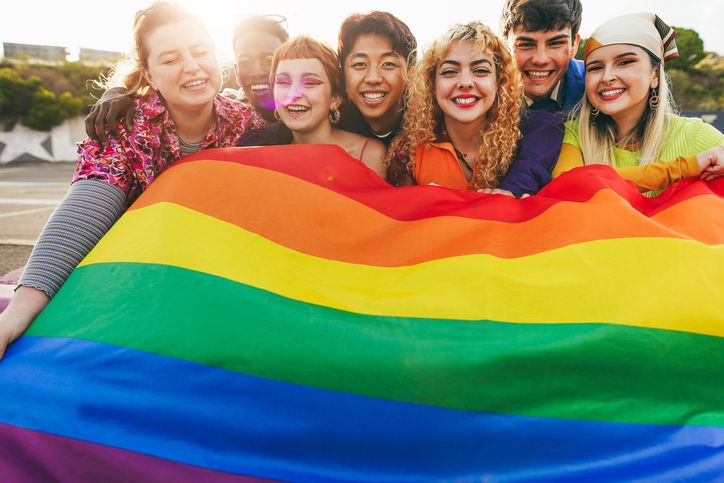Among LGBTQ+ Adults, Mental Health Improves with Age
Many years of research have identified health and mental health disparities among LGBTQ+ individuals, showing they experience higher rates of mental health problems compared to the heterosexual, cisgender population. A recent APA national poll found that LGBTQ+ adults are more likely than adults overall to be anxious about a number of current issues, including gun violence, climate change and the future of reproductive rights. They are twice as likely (62% vs 31%) to be anxious about the future of LGBTQ+ rights.

A new study published in Psychiatric Services takes a closer look at mental health distress among LGBTQ+ individuals across age groups. Study authors Lucas Zullo, Ph.D., Adrienne Grzenda, M.D., Ph.D., and colleagues with the University of California, Los Angeles, assessed mental distress based on participants reporting the number of days during the past month their mental health was not good. The study found significant disparities in mental health among LQBGT+ young adults relative to their heterosexual, cisgender counterparts, but not in older subpopulations. Among those ages 18-24, gender-diverse individuals experienced the highest level of mental distress, followed by bisexual, gay or lesbian, and heterosexual respondents. Mental distress measures of all LGBTQ+ significantly differed from cisgender heterosexual individuals among those ages 18–24, but not among those ages 45 and older.

The heightened mental health concerns of younger LGBTQ+ individuals are in line with results of a study earlier this year from The Trevor Project which found that 45% of LGBTQ youth seriously considered attempting suicide in the past year. The report also highlighted the value of family support: LGBTQ+ youth who felt high social support from their family reported attempting suicide at less than half the rate of those who felt low or moderate social support. Concerningly, the study also found that more than half of LGBTQ+ youth that wanted mental health help in the past year were unable to get it.
Developing effective coping strategies and strong support networks over time may help boost older LGBTQ+ individuals’ resiliency, Zullo and colleagues suggest. They propose that a possible explanation of the results is that LGBTQ+ adults “may have learned effective coping strategies that buffer against the health consequences of discrimination.” They go on to suggest that mental health services for younger LGBTQ+ adults could help “to counteract the negative effects of discrimination.” One further explanation may be “the creation of a robust social support network during the life span. This factor may be addressed by supporting programs such as gay-straight alliances in educational settings and by making local LGBT centers attractive and accessible to young adults so that an affirming social network can be created early in life.”
Even with these potential mental health improvements with age, older LGBTQ+ adults were especially impacted by the pandemic, according to a recent survey from AARP. About half said they had days when they feel anxious and about a third reported experiencing symptoms of depression. The AARP survey found that 41% of LGBTQ+ people are at least somewhat concerned about having to hide their identity to access suitable housing as they age and 82% are at least somewhat concerned about having adequate family and social supports as they age.
Zullo and colleagues conclude that their study provides preliminary evidence of “positive life trajectories among sexual gender minority adults” and “adds to the established literature that SGM young adults are in great need of mental health services because of the disproportionately high levels of mental distress in this group.”
References
- AARP. (2022). Pandemic Has Taken a Mental Health Toll on LGBTQ+. (Hallie Levine, June 14, 2022.)
- The Trevor Project. (2022). 2022 National Survey on LGBTQ Youth Mental Health.
- Zullo, L., et al. (2022). Age-Associated Differences in Mental Distress Among Sexual and Gender Minority Adults. Psychiatric Services. Online ahead of print.
